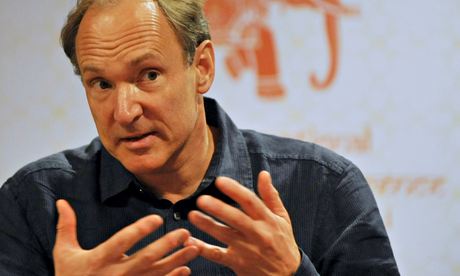
The last thing I wanted to do when I left high school was to go back there. The learning part was fine, but emotionally it was exhausting – if you remember – being with 900 other 12- to 16-year-olds all hyper-social to the point of paranoia. We lived in our bubble of school and friends and felt that nothing else mattered.
So when visitors from the Outside World came in to talk to us, it made quite an impression. I still remember the graphic designer, the theatre company, the illustrator, even the car designer; all of them pierced that unreal bubble of school world and gave a hint of what might be out there.
A few months ago I found out that my school had been in special measures, which were finally lifted in January after nearly a year's intensive work by the teachers. My first instinct was to contact them and ask to visit as a speaker, in the hope that I might be able to show that in some modest way there is life after school. What impact does it have on the children and teachers when a school is labelled as "special measures", I asked. "We've had children telling teachers 'You're shit, Miss!'", one of the assistants sighed. How do teachers begin to keep enthusiasm and energy for teaching in that kind of environment? And how bad for a pupil to feel that they have been labelled part of a failing institution over which they have very little control.
I had a familiar knot in my stomach as I went through the school gates. It was 23 years since I left, yet seemed weirdly unchanged, resonating with those memories of first boyfriend and school play, of the supply teacher standing on the table and shouting to get our attention. The journalist-turned-history teacher teasing me for eating lentils in our "hippy house", and the English room where I'd once presented my teacher with a concrete poem about a sausage, written on a sausage. (It was quite unpleasant in the English cupboard when it was discovered rotting weeks later, but I think the smell has now finally dispersed.)
I carefully invited, I thought, girls and boys to my session by explaining my job in the media and giving some insights into British achievements in technology and gaming. I was mortified when 36 boys turned up and not a single girl. The association of computer science and engineering as a male occupation has been well discussed and is a shared problem everyone wants to crack, but the wider technology industry is more diverse.
Gaming, in particular, is now a mainstream industry; the UK Interactive Entertainment association says that more than 33 million people in the UK play games regularly, and 55 million hours of games are played every day. That represents a significant industry of artists, designers, project managers and storytellers and nobody would label any of those skills a male or female domain, even if female developers are less common.
I asked the class: how many of you have heard of Ada Lovelace, who developed the first mathematical model for a computer programme in 1842? Or Charles Babbage, who conceived the rudimentary computer, the difference engine, in 1812? Or even Tim Berners-Lee, who invented the world wide web in 1989? Two hands went up for Berners-Lee, a couple more for Rockstar, the British company that developed Grand Theft Auto. The rest of British engineering history, of which we have done such a great job burying behind our reverence for US technology, was lost.
I made allowances for the age of these pupils and perhaps a little of the short-sightedness that comes with being a teenager. But at least with technology I was able to break through to something that is part of their daily life. Journalism was not so easy; not one of them said they were interested.
Who pulls you back in line when you do something wrong? "It would be, like, the police and stuff." OK, so what about if the government does something wrong? Blank stares and I explained about the press and the fourth estate, digressing into Edward Snowden. The room went quiet, but I think I heard the sound of a penny dropping.
I'm an amateur at teaching and couldn't make the kind of impact a skilled professional might, but I hope it might have encouraged some of them to think about how embedded technology will be in their lives by the time they make it out to work. Both my parents were teachers and I know how heavy the personal toll of bureaucracy can be, however committed they are. When one of my very best teachers died, our headmaster said that teachers are either bucket fillers or fire lighters. All of us will know that to be true, but it can only be getting harder to do in a system that seems designed to fill buckets instead.

